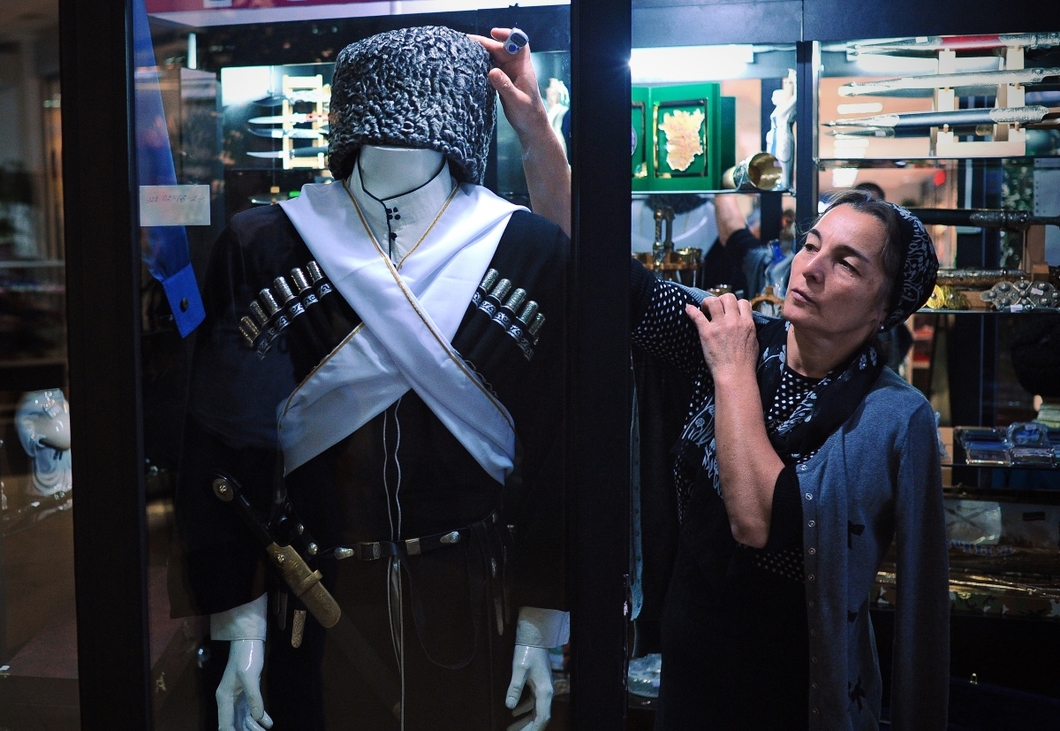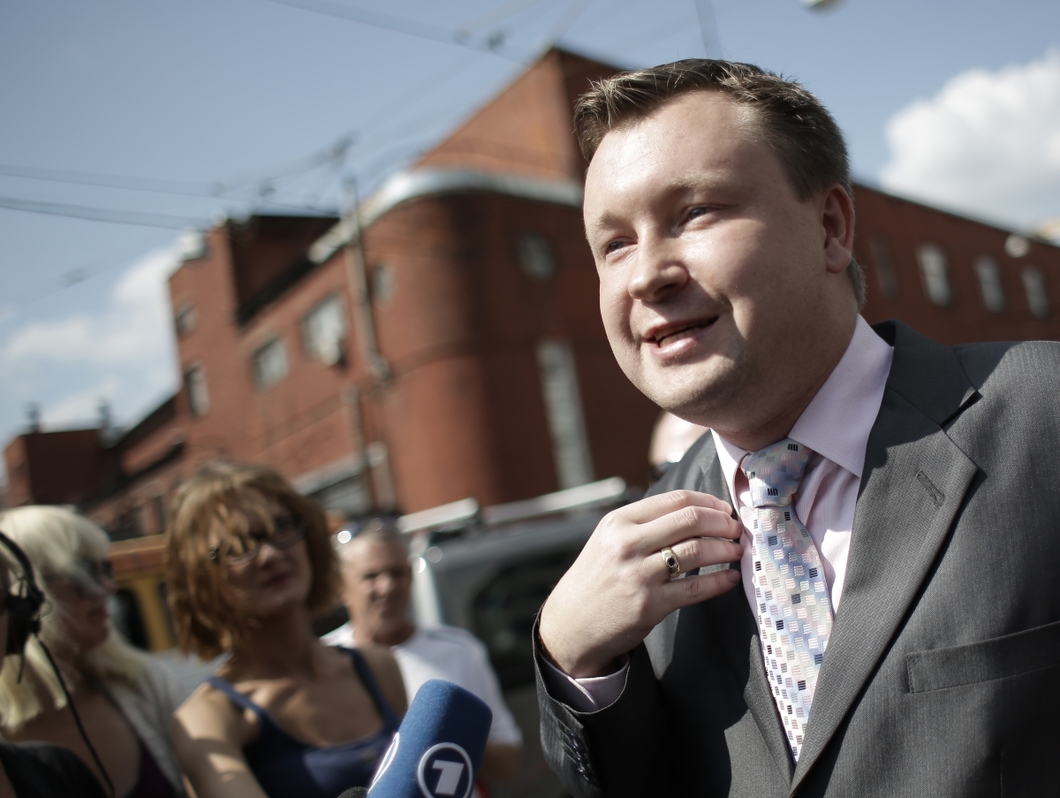Honour killings
Новая газета
People have been arrested by the score in Chechnya for having a ‘non-traditional sexual orientation’ or simply on suspicion of being gay, Novaya Gazeta reports.
It says it knows of at least a hundred men who have been detained and of three others who have been killed. It cites its sources as saying the actual death toll could be much higher.
The word ‘detentions’ first started to come in about a week ago and has since been verified by a great number of sources – in Chechnya’s interior ministry, presidential administration, prosecutor’s office, as well as by some local LGBT activists.
There have been some cases in which a person was (in a very rare show of leniency by the detainers) released shortly after they were arrested. They have since fled the republic, as have many others, after learning about arrests of their friends and acquaintances.
Arrests have been made not only in the capital, Grozny, but also in other parts of the republic.
Some of those detained are members of the Chechen muftiat [the high Islamic council], including a number of well-known religious figures close to the republic’s leader, and two media personalities.
It goes without saying that none of them had ever been open about their sexual identity – in the Caucasus, coming out is often tantamount to inviting a death sentence. However, the extremely short social distances between members of the traditional Chechen society mean word travels fast here, and such things can’t be kept secret for long.
Some Chechens have been leaving their closed chat rooms in panic and deleting their social media accounts. Others have, despite all the obvious risks, tried to alert others to the danger.
Here’s what one user of the social media site Vkontakte wrote:
“Salamu aleikum, everyone!
I didn’t think I’d ever dare post anything here again, but since it’s turning into a chain – one where a person gets framed and then is tortured until he reveals others’ names, meaning anyone, including me, may become the next target – I thought I’d do the right thing by warning you.
Many would write here about [homosexuals] who they said had been set up. And I even tried to track down these frame-up victims. However, as I failed to find any, I thought none of it was true. Now I know why I couldn’t have tracked them down, because, unfortunately, many of them had been killed.
It’s not only young guys who have been killed, but also older men aged over 50. Some of them are well-known people in Chechnya. You may have seen them attending various events, featuring in newscasts and participating in various contests. I don’t want to give their names. The youngest of them was 16 years old. We come from the same village. The other day they brought him – he was all battered up, a sack of bones is what [he looked like]. They dropped him on the ground in his courtyard and [told his family] he deserved to be killed. He has not regained his consciousness yet and, most likely, never will.
I don’t know how they go about explaining why they do this… Unfounded libel is a strictly punishable act in Chechnya. [The libelers] can easily end up with the tables turned on themselves. When they raise their hand against a man and defame him by accusing him of homosexuality, they bring upon themselves a disgrace that cannot be undone for generations to come. I don’t know how they get to explain their actions away, but I know for sure that this lousy stuff is really happening. A relative of mine, who is a straight person and military, has told me about it this morning.
I was wrong when I wrote here that frame-ups did not happen. They do, and with impunity so. Be as careful as you can, delete any contacts that may be found suspicious.
And, importantly, avoid those rent-for-a-day apartments, because the owners are likely to have been coerced into installing cameras there, which is where the compromising evidence comes from. Many Chechen housing owners would do anything to keep their business, besides who would dare to disobey our military? Be very careful, please. This is my last entry here.”

National costume, the Grozny Museum, Chechnya. Photo by RIA Novosti
A Chechen who has been arrested for being a homosexual – or on suspicion of being one – has little chance of making it out alive.
Tell his family the reason he’s been detained and rest assured they won’t go seeking justice and filing official complaints about the incident. Moreover, they will try to make sure no one finds out about it, even if the detainee has died at the hands of the persecutors.
Some do get to be released, when no evidence has been found to prove their ‘guilt’. But in this case it is their own family they should be aware of: the ancient custom of ‘honour killings’ – when family members kill another member who they hold as having brought shame and dishonor on them – is still alive in Chechnya.
Novaya Gazeta’s sources in the Chechen security services said the wave of arrests, which they referred to as “preventive cleansing”, was in response to a recent outburst of activity by LGBT campaigners.
Early in March, activists of GayRussia.ru, a project campaigning for LGBT rights in Russia, announced their plan to hold a series of gay parades in four cities across the North Caucasus.
One of them, a Vladimir Klimov from Russia’s Sverdlovsk Region, sent a “notification letter” to the administration of Nalchik, the capital city of Kabardino-Balkaria, on 9 March, saying his fellow activists intended to hold a march through Nalchik’s central parts. He said 300 people were likely to take part.
Predictably, the Nalchik authorities refused to sanction the event. And it looked like it was just the answer the campaigners had counted on.
Similar notification letters were sent out on 9-10 March to the administrations of Cherkessk, Stavropol and Maykop.
As the information about GayRussia.ru wanting to hold gay parades in the Caucasus made it into the local newscasts, protests broke out across the region, and videos started to circulate on local social media sites that called for the killing of people of ‘non-traditional sexual orientation’.
It was then that the “preventive cleansing” began in Chechnya, actually leading to killings.
GayRussia.ru leader Nikolai Alekseyev told Novaya Gazeta the notification letters were his way of advocating for the LGBT community’s constitutional rights, for the freedom of assembly and against the law banning ‘gay propaganda’.
“We no longer conduct unsanctioned gay parades,” he said, “We used to, now we don’t. [When organizing an event] we approach the [given] authorities to ask that they issue permission for it and to ensure security for its participants.”
When asked by Novaya Gazeta where the turnout figure stated in the notification letters – 300 people – came from and how many local LGBT activists had actually planned to march in Nalchik, Cherkessk, Maykop and Stavropol, Alekseyev struggled to come up with a clear answer. He only said that Moscow and Saint-Petersburg-based activists would, probably, have come to the Caucasus to participate in the marches had the local authorities agreed to sanction them.
Interestingly, neither Alekseyev, nor his lawyers came to Nalchik to attend the pre-trial hearings of their own appeal against the city authorities’ refusal to permit the pride parade.
When probed on this, Alekseyev said fears for his personal safety had factored into his decision not to attend the hearing. He’d received “a great number of threats”, he said.

Apart from his LGBT activism, Alekseyev is known for the numerous lawsuits he has filed: every time his application for the permission to hold a rally is turned down, he lodges a complaint with a local court, before eventually taking the matter to the European Court for Human Rights.
In 2011, he scored his first victory in Strasburg, securing a compensation of 29,000 EUR.
Presently, the ECHR is looking into two other complaints by Alekseyev, and the total compensation they qualify for is some 100,000 EUR, said Irina Kosterina of a Heinrich Böll gender prog.
Alekseyev himself said more complaints – “a wave of an unprecedented scale” – were being prepared to go to the European Court. The refusals from the four Caucasus cities must be among them.
Novaya Gazeta asked him whether he realized that by announcing his intention to hold gay parades in the Caucasus he had triggered a mass persecution and, in some cases, killings of members of the local LGBT community. His answer was that Novaya Gazeta “engaged in speculation, using unverified information”. “I know nothing about such persecutions and consequences of my actions,” he said.
What happened is that Alekseyev failed to take the local specifics into account. He failed to realize that in the Caucasus, where words are still taken at face value, a letter of intent like the ones he sent out would produce dramatic consequences.
Those who have now set out to kill members of the local LGBT community have certainly taken his intentions seriously.
Novaya Gazeta has learnt that a number of Russian LGBT organizations (GayRussia.ru is not among them) have set up a hotline accepting reports of persecution from Chechens and are ready to help with evacuations.
For its part, Novaya Gazeta is getting ready to approach the Russian prosecutor general’s office and presidential administration. It plans to present the personal data of the three killed persons to the investigators and demand that a criminal case be launched, since it is only as part of a criminal investigation that exhumations can be carried out to reveal the real cause of the deaths.
On 29 March, a network of Russian LGBT organizations posted the following message on social networks:
“In response to the increased attacks on gays, lesbians, transsexuals (or those who are perceived as ones) in the republics of the North Caucasus, the Russian LGBT network has launched a hotline for the residents of the region who are in danger. If you feel at risk or are threatened, immediately contact us at [email protected]
We guarantee that the information you provide (including your name and surname) will only be known to three of our employees who are directly responsible for organizing the response effort.
We recommend that you provide the following information:
- describe your situation;
- what is the help you need;
- your name and surname.
We will respond to your request as soon as we can and will discuss with you how we can help you.



















